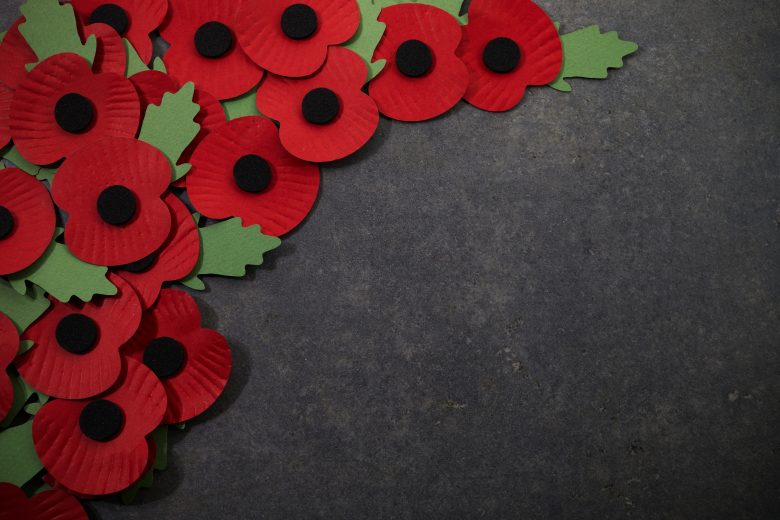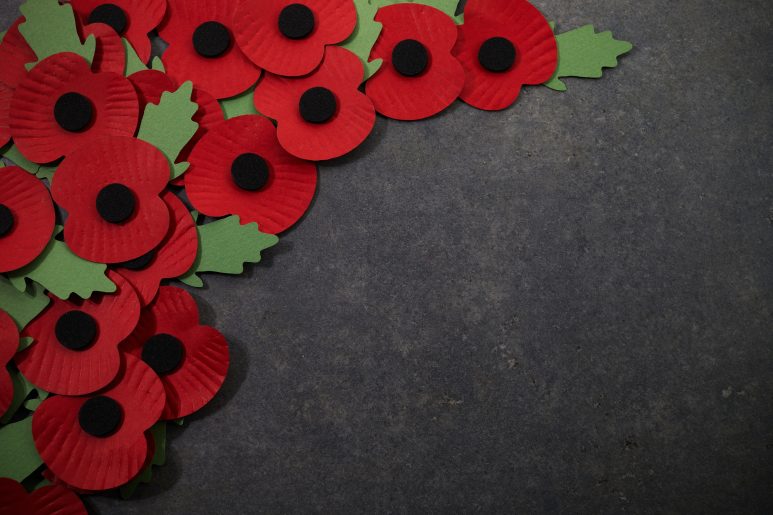By Santiago Bracho, Queen Mary University Graduate
Remembrance Sunday is commemorated on the second Sunday of November.. Memorials are raised for the fallen veterans of WWI and WWII across all the UK, with a National Service of Remembrance held in the Cenotaph in Central London on the 11th of November – attended by the Prime minister, most of the government and the opposition. This is a day of commemoration, grieving and remembrance for the fallen British soldiers – further visually represented by public broadcasters wearing a remembrance poppy on their jacket lapel.
Remembrance Day also seeks to bring light to the lives and sacrifices of the fallen veterans who fought for the armed forces – particularly those who fought in WWI and WWII. However, in UK media, there still seems to be a lack of visibility and representation of the colonial troops who fought during these world wars: people from the West Indies, India, African and Middle East colonies, who died fighting for the British armed forces – as colonial subjects.

In the British media multiple commemorations are carried out for Remembrance Day. The BBC has a full list of their daily schedule and programmes dedicated to this day – including a 2-minute silence on the 11th of November at 11am. The ceremony at the Cenotaph in London always receives a full national broadcast – which is the culmination of local commemorations in community memorials for the fallen who had lived in those communities and cities. However, perhaps because the memorials are organised locally, this can ignore the thousands of fallen soldiers, who did not live in the British Isles, yet fought under its flag.
Where is the permanent memorial for the British Indian Army?
A recent Channel 4 production released on the 2nd of November, ‘The Soldiers That Saved Britain’ highlight the 2.5 million British Army volunteers during WWII who were recruits from what is now India, Pakistan and Bangladesh. The estimates for their combined casualties’ range between 87,000 and over 100,000. Although this was the largest volunteer armed force in the world, it appears much of British media has ignored it. Mobeen Azhar, the host of the Channel 4 documentary, rightly states that there is “there is no permanent memorial” for the fallen veterans of the British Indian army. Furthermore, even the most recent British films set in the world wars ignore the contribution of the British Indian army. For example, the award-nominated film Dunkirk (2017) did not have a single Southeast Asian actor – which was criticised by viewers and historians. Additionally, the BBC hit series SAS: Rogue Heroes, is starting its second broadcasting series, featuring an all-white main cast. Despite the fact the show is set during the North African campaign in WWII, in which the initial British force stationed in Egypt during 1941 was comprised of 36,000 soldiers from Britain, India and New Zealand.
Every single fallen veteran of war should be commemorated, and there can never be a proportionally fair and equitable way to represent people who gave their lives during the bloodiest wars in history. Nevertheless, the correlation between a lack of a permanent monument within the UK to honour the thousands of fallen volunteers from British India, and the lack of media representation cannot be ignored.
The ignorance of non-white, colonial-era forces during the World Wars is not only limited to the British Indian Army. In 2021, Nepalese Ghurka veterans stood outside Downing Street in a hunger strike, in a dispute of war pensions. In WW2 42,000 Ghurkas lost their lives fighting in the British Armed forces, and their descendants and later veterans are still fighting to claim full army pensions – same as any British Armed forces veteran. Although, there were not as many in pure numbers (due to the relative population of the nations) West Indian and Black British forces in the World Wars has also been gravelly ignored. Thankfully, figures such as Anita Ballin – education officer of the Imperial War Museum’s (IWM) – in 1995 started a mass gathering of media material and primary sources, which has now been added to the IWM archives which can be found online. Yet this has not spread into the mainstream of UK media, television and history classes.
Has the lack of media coverage created more division within our society?
Honouring the efforts of these fallen soldiers, is essential to commemorate the incredible sacrifice these people committed. However, it also must be done to understand Britain’s relationships with its former colonies, and British citizens which are descendants from these communities. In November 2024, various member nations of the Commonwealth called for reparations to be made for their nations as former colonies. Yet, the British Prime Minister Keir Starmer has “repeatedly [ruled] out offering reparations or an apology.” Former Conservative Prime Minister Boris Johnson and Reform MP Lee Anderson both received media attention chastising the calls for reparations.
It may appear a wholly separate issue. But it could be argued that for so long British media has ignored the incredible contributions people from former British colonies made during this nation’s most pivotal wars, it creates an incomplete view of history. This incomplete view of history also extends to the British Empire’s overall history, which would help better understand why so many Commonwealths nations, which were colonies, feel entitled to compensation from the British crown.
The archaic, yet popular view that the British Empire was a civilising force for its colonies, does not account for how millions of people fought for the freedom of a nation which was their colonial overlord. News and creative media must play a role in telling these stories. In doing so, a more complete and accurate view of history will be told. Secondly, the fallen heroes will be properly commemorated as much as their British compatriots. Lastly, representation of this kind will showcase how South Asian and Black people are an indispensable part of British cultural heritage. Representing their efforts on Remembrance Sunday is key. Although they will not grow old, their memory must be continued.
Picture from https://www.shutterstock.com/fr/g/vetre
Disclaimer:
The views and opinions expressed in this article are solely those of the author and do not reflect the official policy or position of the Media Diversity Institute. Any question or comment should be addressed to [email protected]

